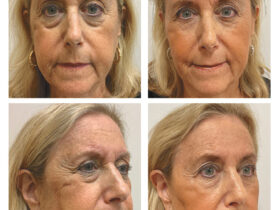 In today’s educated world, most individuals are aware of the importance of being health conscious, but how do you know you are taking the right steps? And the even more important question is how do you stay the course? When life gets busy and we fall back into our unhealthy habits, that’s when disease and chronic illness takes aim.
In today’s educated world, most individuals are aware of the importance of being health conscious, but how do you know you are taking the right steps? And the even more important question is how do you stay the course? When life gets busy and we fall back into our unhealthy habits, that’s when disease and chronic illness takes aim.
Fundamentals that have a profound effect on our health are genetics, underlying illness, environmental toxins, chemical and heavy metal exposures, and behavioral lifestyle choices.
We can’t turn the clock back, but we can mitigate and reverse damage to increase our longevity and help us live well. No matter our age, it’s never too late to get started.
#1 Clean Up Your Diet
In the US, we have an obesity epidemic. Insulin resistance and metabolic syndrome are causing chronic disease to soar to record highs. It’s critical for individuals to stop eating processed, prepackaged foods, and unhealthy restaurant meals that are full of saturated fat, sugar, sodium and chemicals.
Eating organic, if possible, is ideal as it eliminates toxins and chemicals such as pesticides. Eating plenty of vegetables, berries, nuts, seeds, healthy fats like avocado, olive oil and walnuts is the optimal choice for most individuals. Lean proteins such as pasture raised eggs and poultry, cold-water fish, and shellfish provide the nutrients our bodies need when it comes to amino acids and fatty acids. If you are a vegan or vegetarian, plenty of plant-based protein options provide similar benefits. Tempeh, pressure cooked beans, nuts, and seeds are a few such alternatives. Vegetables also contain protein in smaller amounts, so loading up on leafy greens and cruciferous veggies is ideal. Eating a plant- rich diet will provide essential nutrients that our bodies and brains need to thrive.
#2 Exercise
JAMA published a study in 2018 that found that those who do not exercise have an increased risk of premature death, overeating, diabetes, cardiovascular disease, and even cancer-related conditions. In addition to all of the primary health benefits, regular cardiovascular exercise is also known to increase brain-derived neurotrophic factor (BDNF), which is a protein that protects the brain and improves cognitive function. You should always talk to your physician about the right exercise plan for you.
Exercising on a daily basis is best, but 3- 5 times per week is also favorable. Most people can benefit from taking a brisk 30-minute walk or a 30-minute swim. Exercise increases circulation, improves nutrients and oxygen-rich blood flow, helps build strength, promotes weight loss and can help you maintain a healthy weight. If you can work out at the maximum level, it’s incredibly beneficial for cardiovascular health and many other conditions.
Incorporating a mix of light weight strength training, stretching, and balance exercises can help you maintain strength and improve stamina. The more your body can handle, the better your chances for remaining independent as you age.
#3 Brain Training
Staying active and social is also a useful method for maintaining optimal brain health. Along with socialization, staying physically active is imperative in the production of oxygen-rich blood flow and can decrease your risk of Alzheimer’s and dementia. It is possible to prevent cognitive decline through physical exercise, diet, cognitive training, and socialization, and by lowering metabolic risk factors (conditions that increase the risk of heart disease, stroke, and diabetes).
Exercise is critical for brain health. Just a few minutes a day shows marked increases in oxygen uptake in the brain as well as an increase in blood flow. As we age, we should continue to exercise and increase our cardiovascular endurance.
Eating a healthy diet such as the Mediterranean or Dash diet has also been proven to increase cognitive function. These are similar to what was mentioned in the diet section above with a large emphasis on cold-water fish, vegetables, berries and healthy fats.
#4 Socialization and Community
It’s important to have a strong social network of people to enjoy life with you. Our personal communities should be our safe haven, where we engage and support one another. If you don’t have a strong social network, it helps to join a club, yoga class, art class, attend town meetings or volunteer. Zoom and facetime, or even a phone call, are great ways to incorporate socialization if you can’t meet face to face.
#5 The Importance of Sleep
Getting a good night’s sleep is critical for optimal health. The side effects and complications associated with sleep disorders include irritability, fatigue, high blood pressure, cardiovascular disorders, chronic disease, diabetes, depression, behavioral issues, stroke, and brain function impairment. If not rectified, over time, sleep deprivation can lead to heart attacks, stroke, diabetes, and other serious complications. There can be multiple reasons that an individual’s sleep is disrupted. Finding the root cause is critical to overall health.
WellcomeMD Concierge Medicine – Membership Medicine That Makes you a Priority
Discover the power of a personal relationship with your primary care physician while never compromising on preventative medical advances and technology.
• Consider the cost of avoiding a preventable disease, the value of early detection of serious health problems, and ready access to a doctor who knows you.
• WellcomeMD’s Dr. Holly Dagney limits the number of patients she sees, which means that we always have time for you.
• Our members benefit from individualized care with a comprehensive, proactive approach to personal health
• Appointments are focused on your needs and preferences – not a billing code.
• Connect with Dr. Dagney through unhurried, 30-minute visits, video conference appointments, or even just a quick call or text – you choose what works for you.
If you are ready to optimize your health and have options and programs custom-tailored to your specific needs, contact WellcomeMD today.
To schedule your complimentary consultation, please call 239-451-5105 or visit www.WellcomeMD.com.









